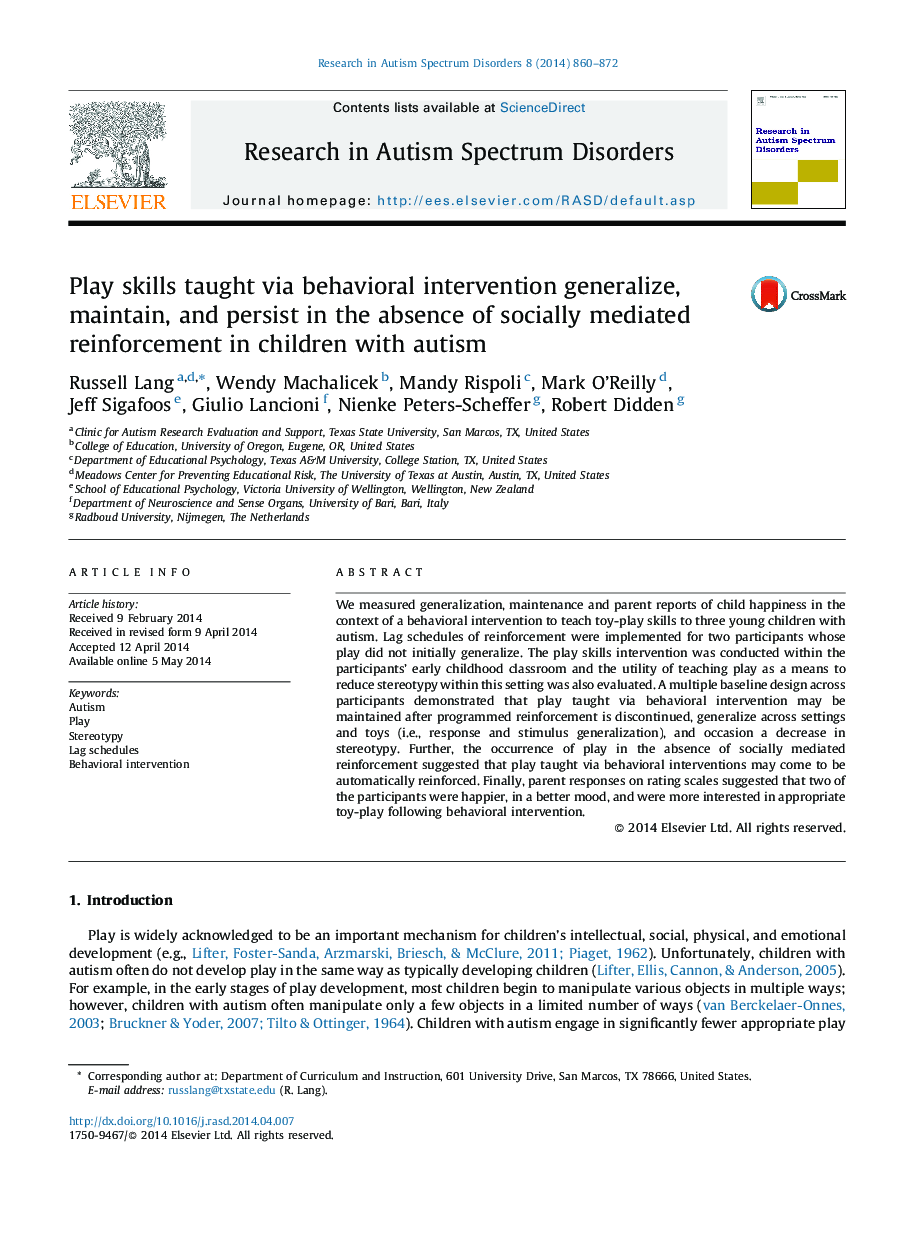| Article ID | Journal | Published Year | Pages | File Type |
|---|---|---|---|---|
| 370256 | Research in Autism Spectrum Disorders | 2014 | 13 Pages |
•Play taught via behavioral interventions may be maintained for at least 2 months.•Play may generalize across settings and toys (response and stimulus generalization).•Play taught via behavioral interventions may come to be automatically reinforced.•Lag schedules of reinforcement may promote generalization of play.•Teaching play may reduce stereotypy.
We measured generalization, maintenance and parent reports of child happiness in the context of a behavioral intervention to teach toy-play skills to three young children with autism. Lag schedules of reinforcement were implemented for two participants whose play did not initially generalize. The play skills intervention was conducted within the participants’ early childhood classroom and the utility of teaching play as a means to reduce stereotypy within this setting was also evaluated. A multiple baseline design across participants demonstrated that play taught via behavioral intervention may be maintained after programmed reinforcement is discontinued, generalize across settings and toys (i.e., response and stimulus generalization), and occasion a decrease in stereotypy. Further, the occurrence of play in the absence of socially mediated reinforcement suggested that play taught via behavioral interventions may come to be automatically reinforced. Finally, parent responses on rating scales suggested that two of the participants were happier, in a better mood, and were more interested in appropriate toy-play following behavioral intervention.
